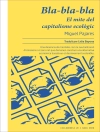The reality of day-to-day engagement practice is at odds with the importance of engagement and the regularity with which it happens. We need to build the capability of anyone planning engagement or consultation, in order to have this important work achieve its potential in influencing policies and programs.
Choosing to Engage is an easy-to-read guide to stakeholder engagement planning, with an emphasis on how engagement should connect to outcomes, to help you design better public policies and services.
This book will help you better understand stakeholder engagements and how they can be planned in parallel with policy and program design. Included is a handy reference guide to 35 engagement techniques, plus a special section on how to handle those tricky collaborative engagements.
สารบัญ
Introduction 1
The role of stakeholder engagement in policy and service delivery 1
What problem are we solving? 1
A different approach to engagement planning 3
Part 1: Reframing stakeholder engagement 5
What is engagement? 5
Understanding modes of involvement 6
Why we can’t use the term ‘consultation’ 8
Our definition of engagement 8
Evaluating engagement 8
The benefits of good engagement 9
Improving research and evidence gathering 9
Reducing risk 10
‘Wicked’ problem-solving 10
Rekindling public trust 11
The consequences of poor engagement 11
Missing a key risk 11
Participants are more angry/frustrated/disengaged after engagement than before it 13
Participants do not connect with, or support, your recommendations 14
You don’t get any useable feedback 16
The current state of engagement in the Australian context 18
What we found 19
Achieving good engagement 22
Engagement isn’t a once-and-done activity 23
Connecting the cycle model and engagement 25
Understanding the ‘outcomes’ of engagement as they relate to policy or service design 27
Prioritising engagement in the planning stages 30
Collaboration isn’t scary once you know when to plan for it 31
Documentation provides transparency 33
Supporting engagement planning 34
Information on possible engagement techniques 34
Better information about suppliers and pricing 34
Better data processing and the evolving role of technology 35
Part 2: The Scaffle method for engagement planning 37
Building your scaffold 37
Identifying your rounds of engagement 38
Assigning timing to rounds 43
Assigning outcomes to rounds 46
Choosing and sequencing engagement activities 48
Getting the right outcome 49
Using involvement modes 50
Timing the activity 51
Sequencing activities 52
Tuning for risk 53
Doing it yourself 55
Planning for reporting 55
Completing our example 56
Planning and running an engagement activity 58
Why it’s best to engage from the outset 68
Contextual analysis 69
Risk identification and analysis 70
Stakeholder identification and capability assessment 71
Testing/checking your plan 74
Bringing it all together 74
Part 3: Delivering great collaboration 77
What is collaboration? 77
What does this mean for collaborative engagement? 80
Designing and delivering great collaboration 81
Part 4: Engagement techniques 97
Codesign process 98
Collaborative problem definition 100
Advertising 102
Factsheet 104
Free call / 1800 numbers 106
Information kit 108
Interactive e-conferencing 110
Media event 112
Press release 114
Trade show or exhibition 116
Citizens’ panel 120
Community mapping 122
Community or public meeting 124
Consensus conference 126
Consensus forum 128
Consultative interview 130
Focus group 132
Issues conference 134
Polling 136
Survey 138
Unconference 140
Advisory committee, board or council 142
Charrette 144
Ideas challenge 146
Policy wiki 148
Roundtable 150
Search conference 152
Citizens’ jury 154
Deliberative polling 156
Delphi process 158
Nominal group process 160
Call for submissions 162
Computer-assisted participation/democracy 164
Constituent assembly 166
Bibliography 169
Acknowledgements 173












